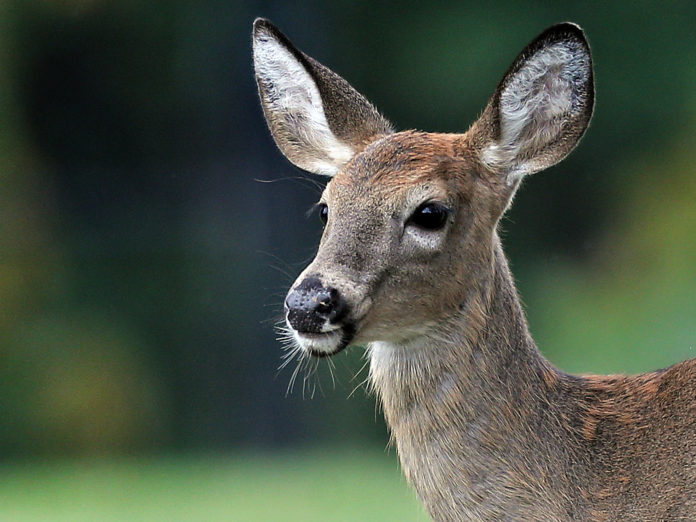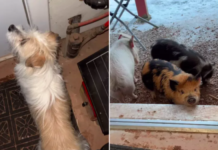
Last Updated on January 19, 2024 by Fumipets
Do Deer Make Great Pets? A Closer Look at Keeping Deer as Companions
Deer, with their graceful presence and charming appearance, often capture the hearts of those who encounter them in the wild. Their endearing qualities have led some individuals to wonder, can deer make great pets? While it may seem tempting to bring these gentle creatures into our homes and lives, the reality of keeping deer as pets is far more complex.
In this exploration, we’ll delve into the world of deer as potential companions, seeking to answer essential questions about their suitability as pets.
Do Deer Make Great Pets?
Since its first debut in 1942, Bambi, an all-time Disney classic, has left a lasting impression on many people. The cute fawn is without a doubt the main factor that made this work so well-known. One of the reasons people question whether deer make good pets and, if so, how to care for them at home is because of this fascinating animal.
Well, to start with, the short answer is no—deer are not at all suitable as pets. As you will see in the next sections of this essay, there are several justifications for this.
Let’s dive in.
Why Deer Don’t Make Great Pets at All
Deer are attractive, clever, simple to train, and seem to be harmless. You may even have a couple in your backyard that come closer every winter to eat what’s left in your trees. At first glance, keeping a deer as a pet may seem like a smart idea. It’s similar to owning large dogs or even horses in some ways, don’t you think? Actually, not quite. Deer are not suitable as pets for the following reasons:

1. They Can Be Dangerous
Who would have believed that once a fawn reaches maturity, it might become a threat to humans? And yes, even if you adopt a young deer and care for it all through its development, there is still a chance that it may become aggressive when it is an adult. For humans to be in danger, male animals in particular during mating season must become abruptly aggressive and suspicious due to an increase in testosterone. Their enormous antlers may pierce your flesh and could hurt you.
What about women, then? Additionally unpredictable are females, particularly while defending their young.
Deer are, however, first and foremost wild creatures, and while they may seem innocent, their behavior may be unpredictable and even dangerous when they are fully matured.
2. It Is Illegal to Keep Deer as Pets in Most States
Since deer are domesticated wild animals, keeping them as pets is often prohibited. Numerous times, individuals have taken in and nurtured fawns they believed to be orphaned after finding them, only to later get a visit from wildlife management. These folks, who believed they were doing morally, were heartbroken to learn that their cherished animal had been taken away and, often, put down.
Deer reared by humans have a low chance of surviving if returned into the wild, thus if there isn’t a facility nearby that can house them, they will be put down without hesitation.
Note: If you come across a young fawn that seems to have been “abandoned” by its mother, see what to do in the final part of this page.
3. They Are Not Easy to Domesticate
Deer are not ideal for domestication because they can leap very high, have a body type that is challenging to saddle or harness, and are so anxious that they may actually pass out from stress. They are also fickle and difficult to confine.
Deer need a lot of work to raise, particularly an orphaned fawn. Since his mother hasn’t taught him the most fundamental things, he could be lacking in certain fundamental behavioral abilities.
Deer maintained in captivity also tend to be more fragile; if you don’t know how to properly care for it, a lot may go wrong. Even though they are at home and at a considerable advantage in the wild, many fawns who are still with their mother do not live to maturity.
Deer are difficult to maintain because they are more prone to fragility, exhibit unpredictable behavior, and mature into uncontrollable, fearful creatures.
4. They May Destroy Your Property
Deer demand a lot of area in addition to usually being an annoyance when they eat, trample, and poop in landscaping and gardens. Of course, if you have enough room in your backyard, you may construct a large, enclosed area. Deer, though, may leap quite high, so you’ll need a sufficient cage. Additionally, you can have even greater difficulty managing your deer’s more destructive and erratic behavior during the rutting season.
What to Do If You Find a Baby Deer Alone?
You come face to face with a little fawn curled up on the ground as you stealthily stroll through the woods. Your immediate reaction is to hurry over and grab him, soothe him, and take him home or to the vet because you think his life is in danger. You undoubtedly have the greatest of intentions, but is it the appropriate course of action in this circumstance?

A fawn not in a group is not always in danger.
A fawn is not always abandoned just because you discover it by itself. The fawn does not have an offensive body odor during the first few weeks of life. Additionally, its covering enables it to merge into the forests with ease. In order to fetch nourishment for the infant, the mother might leave for a short while throughout the day.
The fawn’s instinct is to lay down on the ground and remain motionless when it senses danger. If he anticipates your approach, he is likely to adopt a pose that seems pained or sorrowful but is really perfectly well.
The only circumstance that could call for your assistance is if you discover the injured fawn or its mother’s body nearby. If not, don’t step in! Instead, to avoid frightening it, turn around quietly and calmly without looking behind.
In summary, if you come across a newborn fawn alone in the woods:
Do not touch it
If you touch a fawn, you run the danger of leaving your fragrance behind, which can cause its mother to reject you. The infant is doomed without his mother’s protection. So, resist the impulse to grab it and give it plenty of love and hugs and keep walking silently.
Do not pick it up
Uninformed walkers assume they are doing morally by concluding that the fawn is in danger. However, the fawn is most likely simply concealed in the grass since its mother is out searching for food.
If you are really concerned, leave and return the next day. It’s possible that the little animal has disappeared. You will make it more difficult for it to blend into nature if you pick it up.
Allowing “mother nature to do her thing” is another aspect of protecting animals since she typically gets the job done properly.

What to Do Instead of Having a Deer as a Pet
Even if you are aware of the drawbacks of keeping a cute fawn as a pet, you may still wish to interact with one. Fortunately, those who love deer have a few choices.
• Volunteer at a wildlife rescue center
• Take long walks in nature and bring your camera
• Observe them from afar
• Look for places that allow controlled interactions with deer (like petting zoos or deer farms)
Conclusion
It seems sense to want to keep a deer as a pet. Even if they are cute as newborns, it is never a smart idea to keep wild animals in your house. In order for them to flourish in their natural environment, there are different methods to look after and safeguard them. Additionally, you could undoubtedly discover a better animal friend by just visiting your neighborhood shelter, given the number of abandoned stray dogs and cats each year.
Questions & Answers
Are Deer Suitable as Pets?
Deer are wild animals, and their natural behaviors and needs are quite distinct from those of traditional pets like cats and dogs. While they may appear docile and friendly in the wild, they are fundamentally wild creatures with instincts and requirements that can be challenging to meet in a domestic setting.
What Are the Legal Considerations of Keeping Deer as Pets?
In many regions, it is illegal to keep deer as pets due to wildlife conservation laws. These laws are in place to protect the welfare of wild animals and prevent the disruption of local ecosystems. Before considering a deer as a pet, it’s crucial to research and understand the legal regulations in your area.
Do Deer Require Specialized Care?
Deer have unique dietary, housing, and medical needs that differ significantly from conventional pets. They are herbivores with specific nutritional requirements, and their shelter should mimic their natural environment as closely as possible. Additionally, finding a veterinarian with expertise in treating deer can be challenging.
Can Deer Be Domesticated?
While some wild animals can be domesticated over generations through selective breeding, this process is not feasible for deer in a typical household. Deer can retain their wild instincts, including flightiness and fear of humans, even after generations in captivity.
What Are the Ethical Considerations of Keeping Deer as Pets?
Ethical concerns surround the idea of keeping deer as pets. It’s essential to consider whether it is ethical to remove wild animals from their natural habitats, depriving them of their freedom and exposing them to potential harm or stress.

















